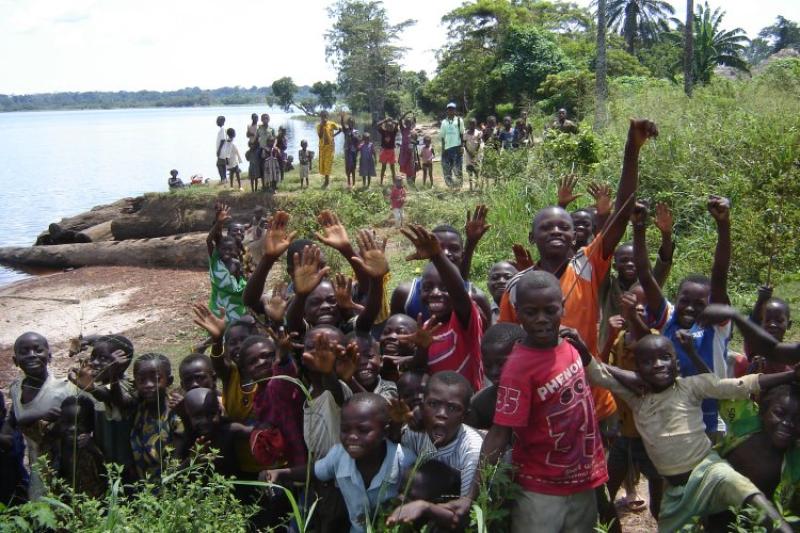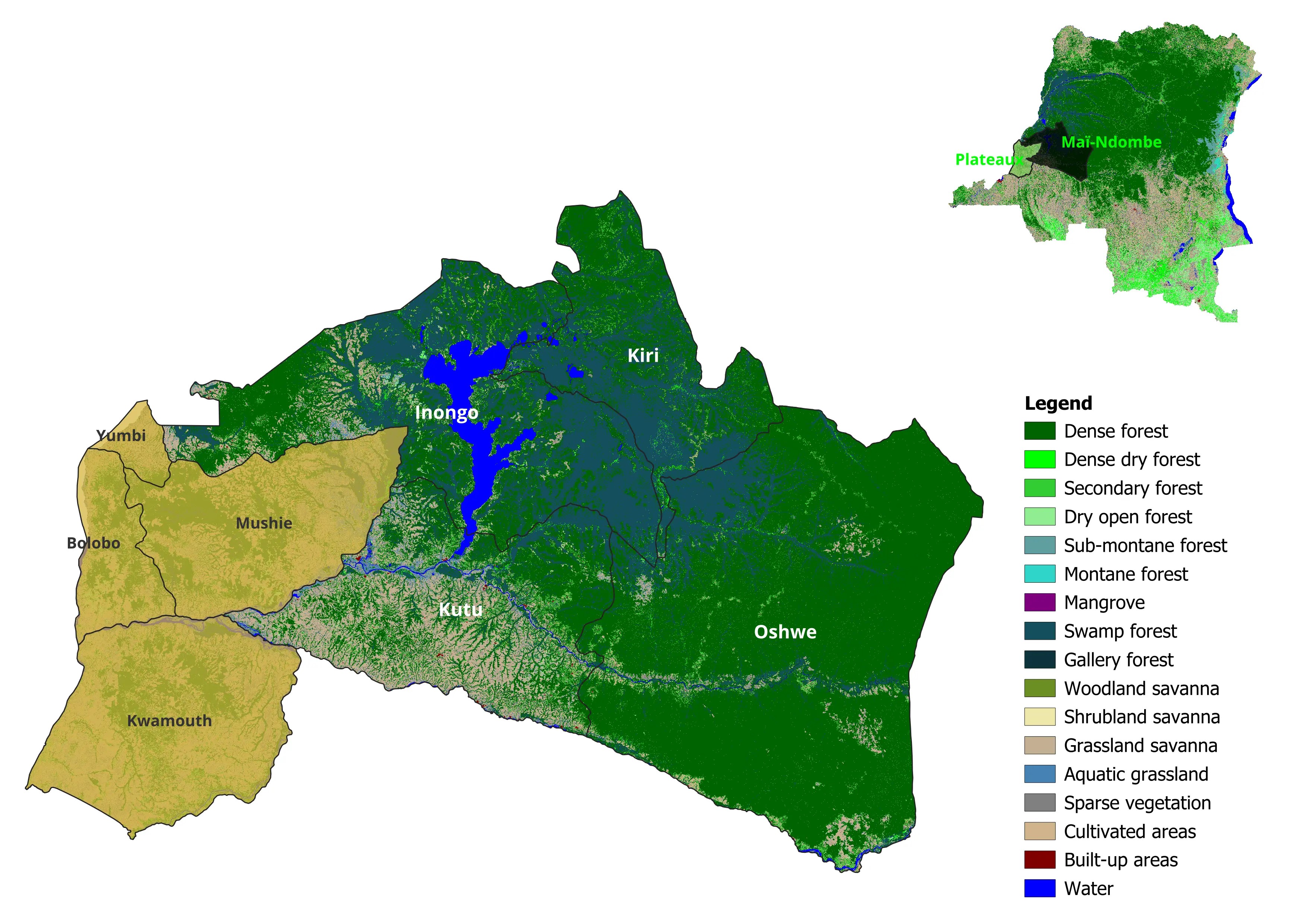

In December 2023, the Steering Committee of the DRC National REDD+ Fund (FONAREDD) approved four new projects and two project extensions, bringing the number of CAFI-funded projects through FONAREDD to a grand total of 22, 19 of which are active. In the next few weeks, a series of articles will highlight the context in which these projects operate, why they represent strategic priorities for DRC and CAFI, and what their key objectives are.
The Mai-Ndombe province of the DRC is located in the heart of the Congo Basin and covers more than 12 million hectares, much of which is forested land. Building on one of the first large-scale REDD + projects in the DRC, CAFI began working with the World Bank on a multi-sectoral integrated project in Mai Ndombe (known by its French acronym, “PIREDD”) in 2017, managed by the Forest Investment Program and implemented by the World Wildlife Fund. The results from this first project helped lay the foundations for significant emissions reduction in the Mai-Ndombe province.
In December 2023, the FONAREDD Steering Committee approved a new phase of PIREDD in Mai-Ndombe province worth $11 million, to be financed and “Fast-Tracked” under the RDC-CAFI partnership’s 2nd Letter of Intent. This new phase is more specifically focused on the Plateaux District of Mai-Ndombe, which boasts 5.2 million hectares of forest and is composed of the four territories of Bolobo, Kwamouth, Mushie and Yumbi.

According to Bruno Hugel, Technical Advisor at the CAFI Secretariat, “The new PIREDD focusing on the Plateaux District really capitalises on the progress made in the previous phase. The results from PIREDD Mai-Ndombe effectively prove that emissions reduction, amongst other impressive results, is possible with multi-sectoral efforts.”
$11 million to focus on rural economic development emissions reduction
Through its previous funding in Mai-Ndombe province, CAFI contributed to the first large-scale REDD+ initiative in the DRC, which achieved significant emissions reductions.
This new 3-year, $11 million project aims to consolidate these positive results, while further developing the “Payment for Environmental Services" (PES) models in this district, which have been successfully piloted in several CAFI projects throughout the DRC.
Led by the Provincial Government in Mai-Ndombe and implemented by UNOPS and the World Wide Fund for Nature (WWF), the new PIREDD Plateaux aims to improve the livelihoods of over 20,000 new direct beneficiaries.
The wide-ranging objectives for this the PIREDD Plateaux include:
“The Steering Committee’s push to fast-track this project also demonstrates a recognition of the positive impact on local populations, and we are looking forward to achieving even more results in terms of deforestation-free sustainable and economic development,” added Joachim Olivier Nzengue Dappa, CAFI Secretariat Portfolio Manager for DRC projects.
Originally published on www.cafi.org